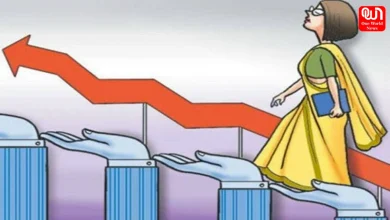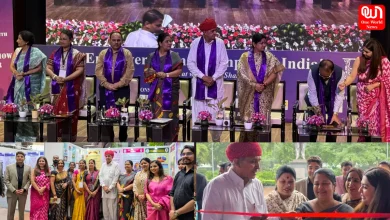Women in Science: 7 Female Scientists Who Made us Proud

Gender stereotypes underrate female scientists, here is a list of women in science who have made the country proud
We all have heard that girls are not good at Mathematics. Students in Engineering colleges often have this notion that mechanical and electronic streams are the ones that women don’t/ can’t take. Women are mostly made to take the backstage with the idea that it is the men who are good at science and technology. But the fact is, that gender stereotype has only taken the centre stage away from female scientists, in ways we can’t legitimise. And it is definitely not wrong to say that the women in science are the most underrated ones. Yet, we have consolidated a list of seven Indian Female Scientists Who Made us Proud –
List of seven female scientists who made the country proud
Asima Chatterjee
Asima Chatterjee made significant contributions to organic chemistry. Her two major contributions include – Ayush-56, an anti-epileptic medication, and anti-malarial medications, and her work on vinca alkaloids. Little did we know, she was the second women ever in India to receive a Doctorate in Science for her studies on the chemistry of plant products and synthetic organic chemistry.
Bibha Chowdhuri
Do you know, we have a star named after this physicist, ‘Bibha Chowdhuri’? Well, Bibha Chowdhuri was a physicist and one of the biggest and early Indian contributors in Science. A star, 340 light-years away from us has been named ‘Bibha’ in December 2019, in honour of her contribution to astronomy. She was known for her contribution to elementary particle physics and cosmic rays.
Read More: International Day of Women in Science: Why Do We Need More Women in Science?
Dr. Indira Hinduja
Indira Hinduja, a woman whose GIFT literature has been published in some of the most prestigious foreign journals. She is known as one of the well-known gynaecologists who introduced the GIFT (Gamate Intra fallopian Transfer) and is also known to be the finest obstetrician, and infertility expert. She is the one who gave birth to the first Indian test tube baby.
Shubha Tole
Shubha Tole is a known name in the field of neuroscience for her contributions. She received the Shanti Swarup Bhatnagar Award in 2010. She is the one who discovered a master regulator gene that regulates the growth of the cortex, hippocampus, and amygdala throughout the brain.
Janaki Ammal
In 1977, Ammal became the first Indian scientist to receive the Padma Shri Award, and she later became the director-general of the Botanical Survey of India. Ammal studied botany in the 1900s, which was an uncommon preference for a woman at the time. She conducted scientific studies in cytogenetics — a branch of genetics concerned with how chromosomes contribute to cell behaviour — and phytogeography — the study of plant species’ geographic distribution. Sugarcane and brinjal are two of Ammal’s most well-known crops.
Kalpana Chawla
Well, this is perhaps a name you must be knowing. Kalpana Chawla, the first Indian-born astronaut to have ventured into space. In 1997, she flew as a mission specialist and primary robotic arm operator on the Space Shuttle Columbia. Chawla was one of the astronauts who perished in the Columbia space shuttle crash on February 1, 2003. When the space shuttle disintegrated as it returned to Earth’s atmosphere, it was a disaster.
Dr. Aditi Pant
Dr. Aditi Pant is a well-known oceanographer who, in 1983, became the first Indian woman to visit Antarctica. She was a member of the third and fifth Indian expeditions to Antarctica for oceanography and geology studies.
Kamala Sohonie
Sohonie was Prof. CV Raman’s first female student when he was the director of the IISc at the time. Sohonie was the first Indian woman to earn a doctorate in the field of science. She applied for a research fellowship at the IISc and was turned down solely because she was a woman. She discovered that every cell in a plant tissue possessed the enzyme cytochrome C, which was involved in all plant cell oxidation.
Celebrated every year on February 11, the International Day of Women and Girls in Science is observed by the United Nation to promote the full and equal access and participation of women in Science, Technology, Engineering and Mathematics (STEM) fields.







